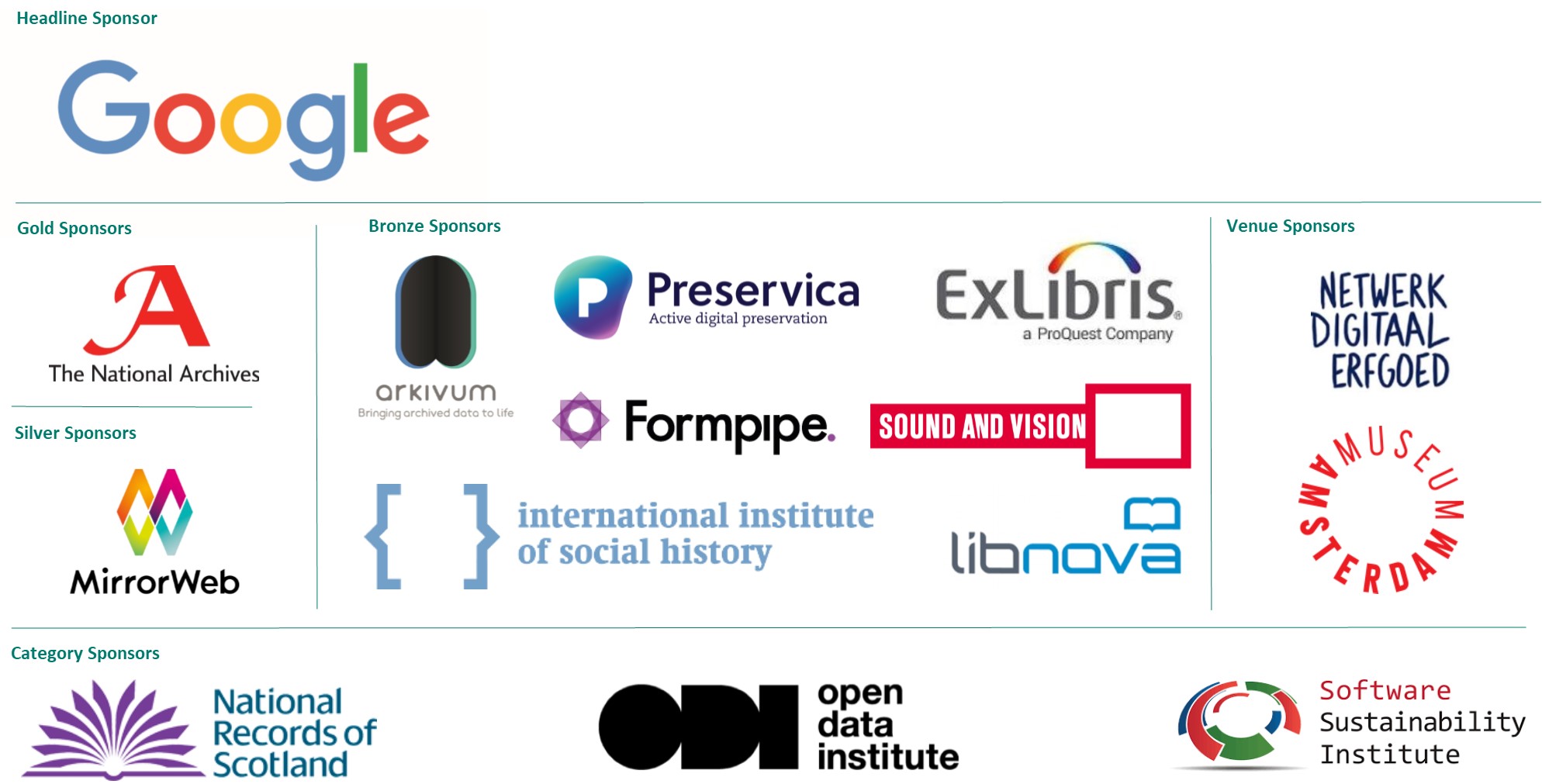Watch the ceremony
Watch the Digital Preservation Awards ceremony, filmed live in November 2018 at the Amsterdam Museum in the Netherlands.
Meet the Winners
Stanford University Libraries, ePADD
|
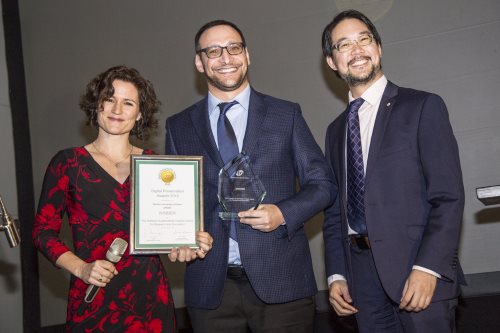 |
2018 Winner of the Software Sustainability Institute (SSI) Award for Research and Innovation
|
Jennifer Allen, Matthew Farrell, Shira Peltzman, Alice Prael and Dorothy Waugh; The Archivist’s Guide to Kryoflux
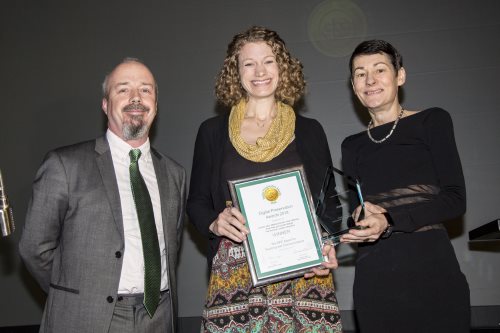 |
2018 Winner of the DPC Award for Teaching and Communications,
|
Anna Oates; University of Illinois at Urbana-Champaign
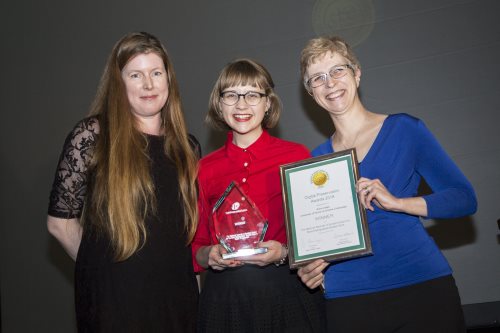 |
2018 Winner of the National Records of Scotland (NRS) Award for the Most Distinguished Student Work in Digital Preservation,
|
Crossrail and Transport for London; Archiving Crossrail
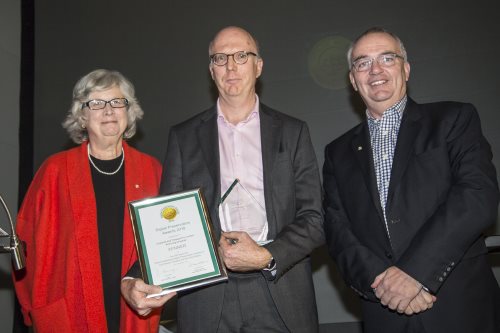 |
2018 Winner of the Open Data Institute (ODI) Award for the Most Outstanding Digital Preservation Initiative in Commerce, Industry and the Third Sector,
|
IFI Irish Film Archive; IFI Loopline Project
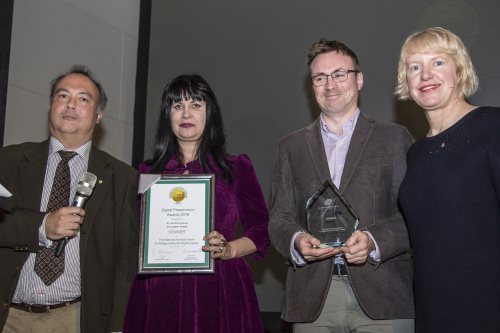 |
2018 Winner of the National Archives Award for Safeguarding the Digital Legacy, presented by Valerie Johnson, The National Archives and Neil JefferiesFrustrated by budget constraints & unresponsive commercial vendors the IFI Irish Film Archive was inspired by the FLOSS community to develop a suite of 55 open source scripts (IFIScripts) that support our digital preservation activities in a sustainable and efficient manner. Solving problems in-house has reduced our maintenance costs and vendor fees and allowed us to take control of our preservation workflows. Not only has IFIScripts helped us to fulfil our digital preservation remit within our limited staff and financial resources, but we sharing all our tools with the preservation community on Githib for others to use and adapt. We are currently completing our first end- to- end application of the IFI Scripts on a preservation projection for a collection of material from a leading Irish film production company called Loopline Films. Watch interview with Kasandra O'Connell and Kieran O'Leary Watch DPA2018 Winners Webinar on the IFI Irish Film Archive Loopline Project |
Barbara Sierman
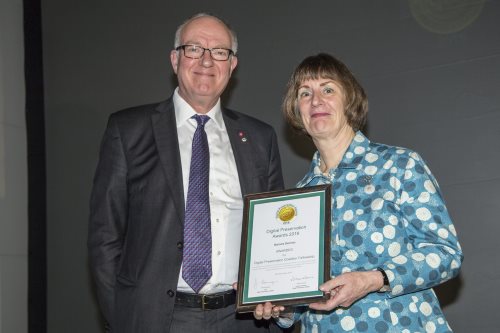 |
2018 Winner of the DPC Fellowship Award,
|
The Digital Preservation Awards 2018 Finalists
|
The Software Sustainability Institute Award for Research and Innovation
|
The DPC Award for Teaching and Communications
|
|
The National Records of Scotland Award for the Most Distinguished Student Work in Digital Preservation
|
The Open Data Institute Award for the Most Outstanding Digital Preservation Initiative in Commerce, Industry and the Third sector |
|
The National Archives Award for Safeguarding the Digital Legacy
In the category of 'Safeguarding the Digital Legacy' The judges also offered a special commendation to the GI Press Collection |
|
The DPC extends grateful thanks to our international panel of Judges and all of our sponsors who made the Digital Preservation Awards 2018 a possibility:
|
David Tarrant, |
Neil Chue Hong, |
Sheila Morrissey, |
|
John Sheridan, |
Neil Grindley, Jisc |
Steve Daly, BBC |
|
Karen Sampson, |
Neil Jefferies, |
Susan Reilly, |
|
Laura Molloy, |
Paul Wheatley, |
Tim Gollins, |
|
Marcel Ras, |
Sally McInnes, |
William Kilbride, |
|
Natalie Harrower, |
Sharon McMeekin, |
